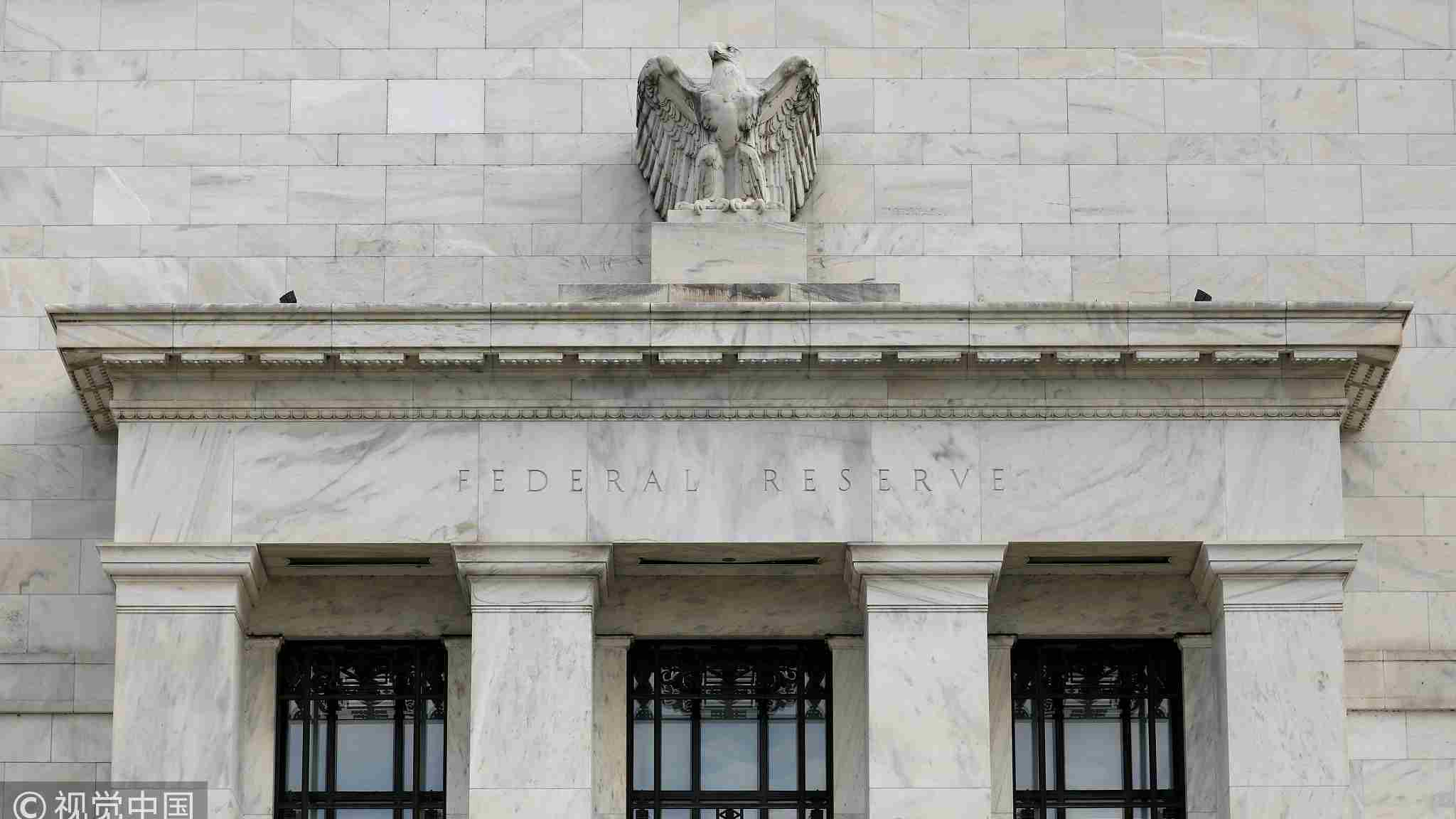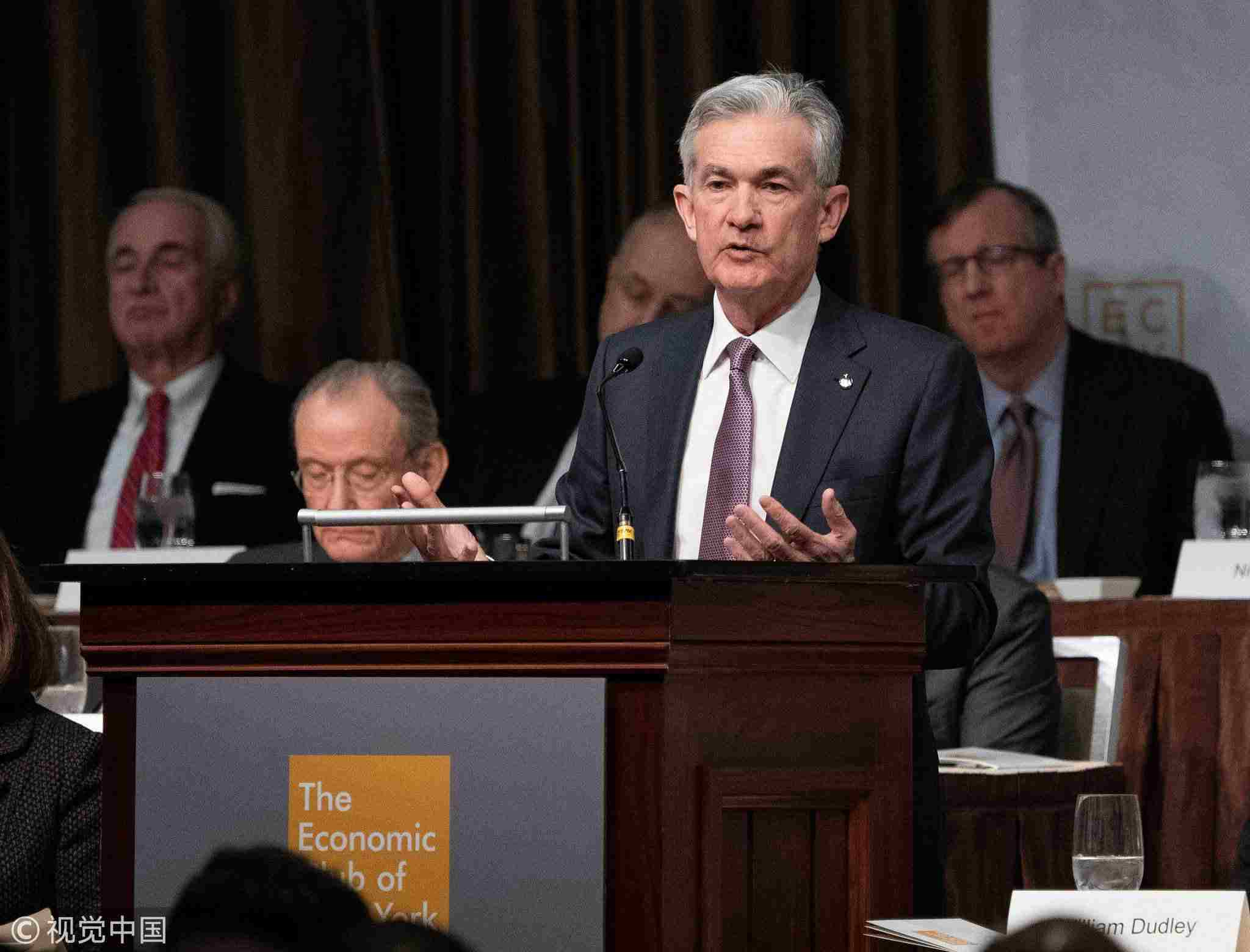
Business
09:33, 29-Nov-2018
Fed: U.S. rate near neutral, warning risks of market drop
Updated
08:41, 02-Dec-2018
CGTN

The U.S. central bank's benchmark interest rate is near a neutral level with several risks to financial stability that could lead to a “particularly large” drop in markets, according to the Federal Reserve.
The Fed warned “an escalation in trade tensions, geopolitical uncertainty, or other adverse shocks could lead to a decline in investor appetite for risks in general” in its first-ever financial stability report, noting “the resulting drop in asset prices might be particularly large, given that valuations appear elevated relative to historical levels.”
U.S. Federal Reserve Chair Jerome Powell injected investors with a strong dose of optimism on Wednesday, saying that "Interest rates are still low by historical standards, and they remain just below the broad range of estimates of the level that would be neutral for the economy-that is, neither speeding up nor slowing down growth," comments that many investors read as signaling the Fed's three-year tightening cycle might come to an end.
Powell said in early October there was still long way to go before the benchmark interest rate hits neutral. His remarks then led to an equity market sell-off as investors feared fast interest rate hike pace would slow down the economy.
Having risen three times this year, the fed funds rate now stands at the target range of 2.0 to 2.25 percent. Market expectations for a Fed rate hike in December stood at 82.7 percent, according to the CME Group's FedWatch tool.

Jerome H. Powell, Federal Reserve chairman, speaks at the Economic Club of New York, November 28, 2018, in New York. / VCG Photo
Jerome H. Powell, Federal Reserve chairman, speaks at the Economic Club of New York, November 28, 2018, in New York. / VCG Photo
Powell said the Fed's gradual pace of raising interest rates has been an exercise in balancing risks.
"We know that moving too fast would risk shortening the expansion. We also know that moving too slowly – keeping interest rates too low for too long – could risk other distortions in the form of higher inflation or destabilizing financial imbalances," he said.
He added that the economic effects of gradual rate increases are uncertain, and may "take a year or more to be fully realized."
"While FOMC (Federal Open Market Committee) participants' projections are based on our best assessments of the outlook, there is no preset policy path," said Powell.
Talking about the economic outlook, Powell said the FOMC is forecasting continued solid growth, low unemployment, and inflation near two percent.
On stocks market, he said equity market prices are broadly consistent with historical benchmarks such as forward price-to-earnings ratios.
"It is important to distinguish between market volatility and events that threaten financial stability. Large, sustained declines in equity prices can put downward pressure on spending and confidence. From the financial stability perspective, however, today we do not see dangerous excesses in the stock market," Powell said.
U.S. stocks soared on Powell's speech, with all three major indices gaining more than two percent.
(With inputs from Xinhua)

SITEMAP
Copyright © 2018 CGTN. Beijing ICP prepared NO.16065310-3
Copyright © 2018 CGTN. Beijing ICP prepared NO.16065310-3